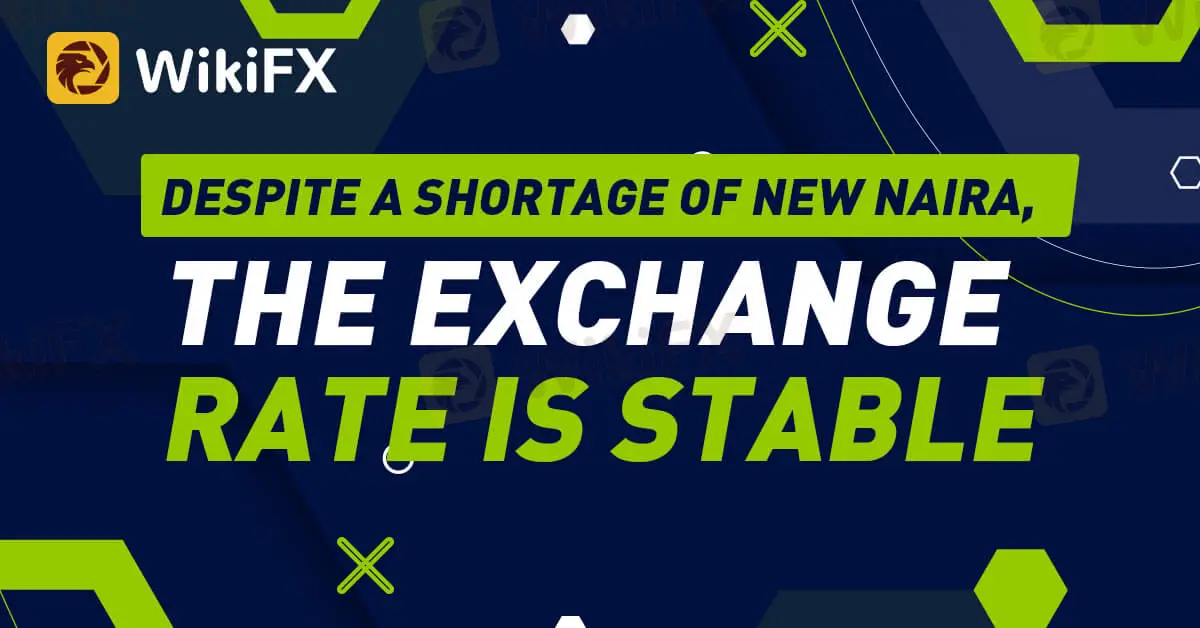简体中文
繁體中文
English
Pусский
日本語
ภาษาไทย
Tiếng Việt
Bahasa Indonesia
Español
हिन्दी
Filippiiniläinen
Français
Deutsch
Português
Türkçe
한국어
العربية
DESPITE A SHORTAGE OF NEW NAIRA, THE EXCHANGE RATE IS STABLE
Abstract:As the lack of naira redesign continues in Nigeria, the exchange rate between the naira and the dollar has stabilized.

As the lack of naira redesign continues in Nigeria, the exchange rate between the naira and the dollar has stabilized.
According to data from the FMDQ, the dollar was quoted at about N461/$1 at the Investors and Exporters (I&E) currency window, Nigeria's official FX market, year to date, it on a lower level than the N456.50 reported on December 23, 2022.
The dollar has traded at N461.50 to $1 for the past three trading days in the I&E window, commonly called the Nigerian Autonomous Foreign Exchange Fixing (NAFEX).
The local currency gained 0.27 percent (N2) reaching N752 per dollar as opposed to N754 that was settled on Tuesday in the so-called black market.
The naira has depreciated 1.86 percent (N14) so far this year, going from trading at N738 per dollar on the first trading day of the year to the current unofficial of N752/$1.
According to a dealer who sells dollars to importers, “Demand for the dollar has decreased as importers are not making more transactions since the scarcity of the new naira.”
The old naira notes will no longer be used after February 10, 2023, according to the Central Bank of Nigeria (CBN), which originally planned to phase them out by January 31, 2023. However, under intense pressure from the Senate, the CBN extended the deadline.
Uche Uwaleke, a professor of capital markets at Nasarawa State University, Keffi, said the effect of the redesigned naira policy on the exchange rate, stating that “the impact is likely to be positive since the currency redesign is meant to reduce currency in circulation, which should in turn reduce the amount of naira that is used to chase the dollar, especially in the parallel market.”
Aminu Gwadabe, national president of the Bureau De Change (BDC) Operators Association of Nigeria, stated that “on the exchange front, the market levels have stabilized over the period of N740/N750 bid the greenback.” He continued by stating that the market's liquidity is still low due to strong demand pressure.
According to Gwadabe, the CBN is moving all transactions online, particularly with the introduction of the Afrigo national domestic to do away with the dominance of visa and master cards in the payment industry.
To improve inclusivity, he said, targeted initiatives like no cash withdrawals over the counter, only ATMs, and POS.
He claims that there are several lines at bank ATMs across the country as a result of unforeseen obstacles to small traders and beyond.
Godwin Emefiele, has ordered deposit money institutions to begin providing customers with over-the-counter payments of new naira with a daily cap of N20,000.
According to Gwadabe, the CBN took close look at the BDCs' spreads and use them to include and distribute AfriGo card domestic national card payments.
There is a need for concerted efforts to prepare, collaborate, and implement evidence-based solutions to volatiles, according to Gwadabe. “Already we are facing the hegemony of crypto currencies,” he added.
The government's long-term foreign currency and local currency issuer ratings, as well as its foreign currency senior unsecured debt ratings, were all downgraded last week by Moody's Investors. The country's outlook was also changed from positive to stable.

Disclaimer:
The views in this article only represent the author's personal views, and do not constitute investment advice on this platform. This platform does not guarantee the accuracy, completeness and timeliness of the information in the article, and will not be liable for any loss caused by the use of or reliance on the information in the article.
Read more

The Impact of Interest Rate Decisions on the Forex Market
Interest rate changes determine currency attractiveness, influencing capital flows and exchange rate trends. Understanding this mechanism helps investors navigate the forex market effectively.

A Trader’s Worst Mistake: Overlooking Broker Reviews Could Cost You Everything
In today’s digital age, reviews influence nearly every decision we make. When purchasing a smartphone, television, or home appliance, we pore over customer feedback and expert opinions to ensure we’re making the right choice. So why is it that, when it comes to choosing an online broker where real money and financial security are at stake many traders neglect the crucial step of reading reviews?

Bank Negara Malaysia Flags 12 New Companies for Unauthorised Activity
Bank Negara Malaysia (BNM) has updated its Financial Consumer Alert List (FCA List) by adding 12 more entities, reinforcing its efforts to warn the public against unregulated financial schemes. Check if your broker made the list!

TradingView Brings Live Market Charts to Telegram Users with New Mini App
TradingView has launched a mini app on Telegram, making it easier for users to track market trends, check price movements, and share charts.
WikiFX Broker
Latest News
TradingView Brings Live Market Charts to Telegram Users with New Mini App
Trump tariffs: How will India navigate a world on the brink of a trade war?
Interactive Brokers Launches Forecast Contracts in Canada for Market Predictions
Authorities Alert: MAS Impersonation Scam Hits Singapore
Stocks fall again as Trump tariff jitters continue
INFINOX Partners with Acelerador Racing for Porsche Cup Brazil 2025
Regulatory Failures Lead to $150,000 Fine for Thurston Springer
April Forex Trends: EUR/USD, GBP/USD, USD/JPY, AUD/USD, USD/CAD Insights
March Oil Production Declines: How Is the Market Reacting?
Georgia Man Charged in Danbury Kidnapping and Crypto Extortion Plot
Currency Calculator







